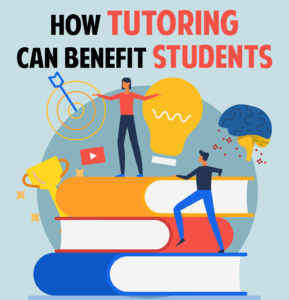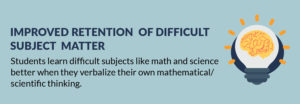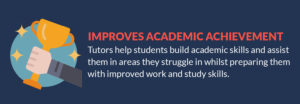April 2, 2020
How Tutoring Can Benefit Students
The Benefits of Tutoring
The benefits of tutoring vary from student to student, but there is no doubt that any student, of any skill level, can benefit from tutoring. Tutoring can assist students that are struggling to keep up with subject matter or challenge those who need an extra push. Tutors can challenge students without evoking feelings of judgment, or the emotional baggage students often feel when working with parents or teachers on school work. We see this a lot. Students time and time again prefer to work with a tutor rather than with their parents or teacher. And this makes sense! A relationship with a tutor is more down-to-earth and relaxed. Students feel comfortable around tutors. They know that they can ask questions without being judged.
Below we discuss how tutoring benefits students and why you should consider enrolling your child, or self, in a tutoring program.
Students that are enrolled in private tutoring benefit from an individualized learning experience. They can learn difficult subjects like math and science better when they verbalize their own mathematical/scientific thinking in a tutoring session. This is critical. Many students are never given the chance in large classrooms to hear themselves speak and think about mathematics. During our tutoring sessions we employ an “active learning” strategy. There is a lot of evidence showing that active learning strategies help students learn and improve their retention of subject matter. The whole idea of active learning is that students are engaged in the process. They are asked to think about what they are doing. This is a form of meta-cognition. Meta-cognition is critical to learning. It provides the bridge between the worksheet or the problems that the students are doing—and the actual learning itself. Learning does not just happen. It doesn’t simply occur when students do homework. Learning functions when the learning environment has been intentionally designed based on scientific evidence.
There is a wide body of evidence that shows that when students solve difficult problems with the support of a tutor, instructor, or peers, they are better able to retain information and achieve their desired learning goals.
Tutors help students build academic skills and assist them in areas they struggle in whilst preparing them with improved work and study skills. The extra layer of preparedness and confidence students gain through tutoring will increase their overall academic achievement. This confidence radiates out to every aspect of a student’s life. It affects how they show up to the classroom. It improves their ability to make connections between complex ideas. It gives them a solid foundation and confidence upon which other successes are built.
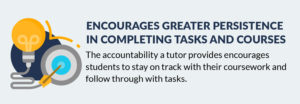
The accountability a tutor provides encourages students to stay on track with their coursework and follow through with tasks. When a student is prepared for their subject matter, and don’t feel overwhelmed, they are more inclined to finish homework and other school-related tasks. This helps in so many ways. Firstly, it is always better to be prepared! This alone really helps students. They start turning in assignments on time. They understand when HW is due and what is expected of them.
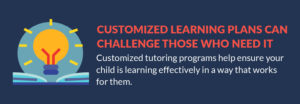
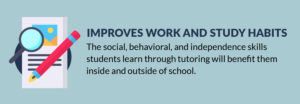
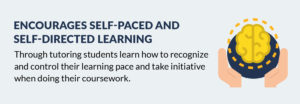
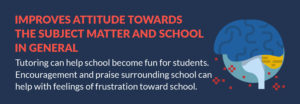
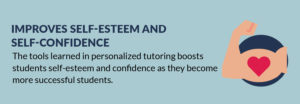
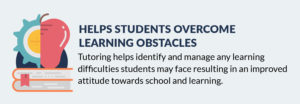
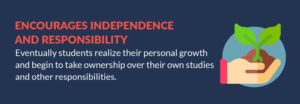
Want more resources? Check out our free resource on how to create an effective home learning program for your child!
REFERENCES
Vygotsky, L. S. (1978). Mind in society. Cambridge, MA: Harvard University Press.
Article Updated April 2020
